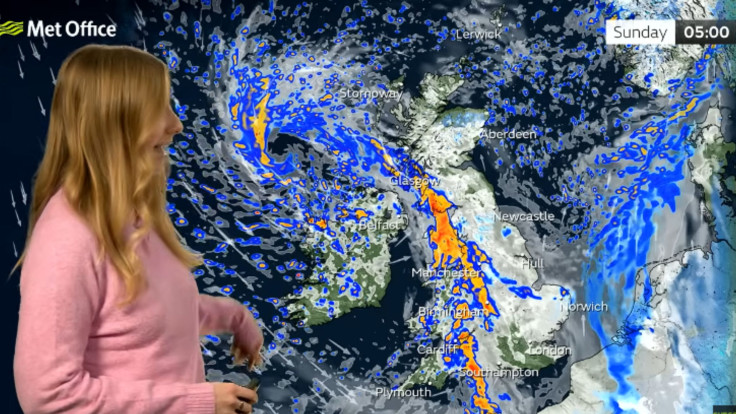'Beast from the East' Set to Strike Again: Rare Arctic Phenomenon Sparks Fears of Brutal UK Freeze
The UK was hit by 20 inches of snow in 2018 when the weather phenomenon first struck

Britain may be heading for another brutal winter shock as forecasters warn that the same rare weather phenomenon behind the 2018 Beast from the East is now 'looking likely' to develop again.
New Met Office data and global forecast models suggest an unusually early Sudden Stratospheric Warming event forming over the Arctic, raising fears of a severe cold spell hitting the UK within a matter of weeks.
The warning comes after days of snow, ice and treacherous wind chill sweeping across the country, shutting schools and sending temperatures plunging to their lowest levels this season.
While a short spell of milder Atlantic-driven weather is expected this weekend, experts caution that this may simply be a temporary pause before a potentially harsher winter blast hits.
The Rare Polar Chain Reaction That Could Hit the UK Next
A Sudden Stratospheric Warming event, known as an SSW, occurs when temperatures high in the stratosphere rise rapidly. That sudden warming disrupts the polar vortex, the ring of powerful winds that circles the Arctic.
When those winds weaken or reverse, the jet stream can collapse southwards, allowing icy Siberian air to spill into Europe and the UK.
This same atmospheric chain reaction produced the infamous Beast from the East in February 2018, when Britain was hit by up to 20 inches of snow, temperatures plunged below minus 14 degrees and Storm Emma brought blizzards that paralysed roads, rail networks and airports.
Now, forecasters say the early signs are strikingly similar.
Met Office meteorologist Aidan McGivern warned in a YouTube forecast on Tuesday, 18 November, that indications of a new SSW were now 'looking likely' for next week.
He explained that most computer models show the winds surrounding the stratospheric polar vortex reversing by late November or early December, a key signal that an SSW may be forming.
McGivern added: 'Firstly it's unusually early for it to be happening, if it happens. Secondly, it can impact the UK's weather, not all of the time, but on roughly 70 per cent of occasions when this happens, cold weather happens in the UK.'
Why This One Could Be More Dangerous
Meteorologists say Britain is currently trapped between battling Arctic and North African air masses, producing sharp regional contrasts. Some areas have already faced heavy snow, flooding and ice, while others have seen bright but bitterly cold days and severe overnight frost.
If an early SSW interacts with this already unstable pattern, the UK could face several weeks of disruptive winter weather. This could include widespread snowfall, prolonged sub-zero temperatures and transport chaos reminiscent of 2018.
This week has already delivered the coldest night of the season, with temperatures tumbling to minus 11.7C at Loch Glascarnoch. Many areas also recorded 'feels-like' temperatures below freezing as schools closed and yellow and amber weather warnings swept the nation.
What to Expect in the Coming Days
Despite rising concern, the Met Office stresses that not every SSW leads to an extreme event. The severity depends on how much the warming disrupts the jet stream and whether cold air is pushed far enough west to reach the UK.
However, the long-range forecast for early to mid-December points to colder than average conditions. Forecasters say the UK is likely to see more settled but chillier periods as low-pressure systems are pushed south of the country. This pattern increases the risk of Arctic air flooding Britain, bringing snow, freezing fog and increasingly hazardous conditions.
Britain Told to Brace for a Harsh Start to Winter
For now, Britain will experience a brief spell of rain, patchy fog and milder temperatures. But meteorologists say the next 7 to 10 days will be critical, as the evolving behaviour of the polar vortex could determine whether the nation faces a routine December chill or the dramatic return of a Siberian deep freeze.
Forecasters are urging the public to stay vigilant as the atmosphere undergoes potentially dramatic changes. If the early SSW is confirmed, the UK could be just days away from the first major winter shock of the season.
© Copyright IBTimes 2025. All rights reserved.





















